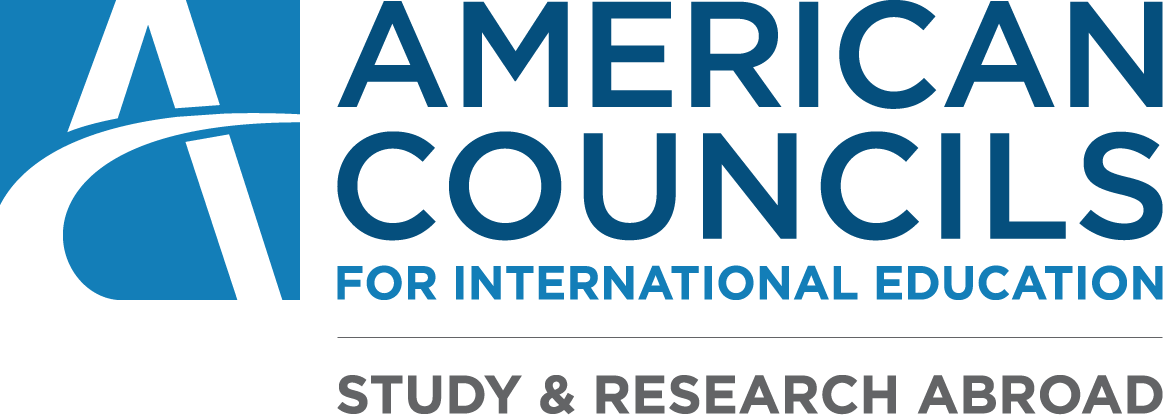Dan Davidson Fellowship Essay: Genevieve Madigan
This story was originally shared on February 7, 2020.
During the summer of 2019, I had the privilege of studying at National Chengchi University in Taipei, Taiwan through the American Councils Tradition and Modernity in Taiwan program. This month-long program focused on the history, culture, and politics of Taiwan. While my time spent there was limited, the experiences I had while abroad exceed my expectations by facilitating my growth in becoming a more well-rounded individual.
I initially chose this program for a plethora of reasons. First, I am a student at Michigan State University with a double major in International Relations and Chinese. Thus, my participation in this program allowed me to further develop my academic and personal education in invaluable ways. In addition to this, I also spent the school year leading up to the summer of this program studying Mandarin Chinese in Northern China, so I wanted to take advantage of geographically available opportunities. Finally, the American Councils Tradition and Modernity in Taiwan program allowed me to further pursue one of my personal goals: to study and understand Taiwan, a region that plays a key role in understanding both Eastern Asian politics and the U.S-Sino relationship. In order to properly do this, I needed the opportunity to immerse myself in Taiwanese culture and society.
In this program, we enrolled in history and culture courses, as well as taking the supplementary Chinese courses that were interspersed with educational excursions. We learned about the development behind the history of Taiwan from its tribal roots to the introduction of the Dutch rule, to Chinese, to Japanese, and finally its most recent development into a flourishing democracy. These history lessons were complemented by topics such as Taiwanese culture concerning art, literature, and food. Lastly, our Chinese language courses and excursions to several tribal villages and Taiwan’s National Palace Museum advanced both my appreciation for and understanding of the history that has built up modern Taiwan.
Although these academic experiences provided a solid foundational experience on their own, this program is unique because of the educational experiences and excursions that occurred outside the classroom. For example, by virtue of learning to live in Taiwan, I broadened my view and understanding of the world around me. I had never been to Taiwan before this program, so everyday Taiwanese occurrences were completely new to me. For example, due to the island’s location, earthquakes and typhoons regularly occur, so it is not uncommon for classes to be canceled because of such occurrences. As someone who has never before experienced an earthquake or typhoon, I was both shocked when awoken from an earthquake at 5:30am and concerned when classes were canceled due to an approaching typhoon. Although a study abroad experience is more than an introduction to foreign natural disasters, these experiences concretely influenced my own personal growth.
Another influential factor that contributed to my study abroad experience were my encounters with Taiwanese students and locals during my stay. During this program, local students volunteered as guides to help my fellow classmates and I navigate Taiwan. This facilitated intellectually provocative conversations regarding contemporary issues and memorable adventures around the city. While in Taiwan, I also had the pleasure to befriend another student, who then introduced me to the cultural phenomenon of Taiwanese night markets and various local delicacies. I will now ardently recommend trying local dishes such as oyster omelets and stinky tofu to anyone who visits Taiwan. Overall, it is through these experiences that my appreciation for the spirit of Taiwanese youth and culture flourished.
In general, my academic classes and excursions, challenges that naturally result from being abroad, and encounters with Taiwanese students and locals, all contributed to a cross-cultural education. I was able to immerse myself as a member of the Taiwanese community and along the way, I had in-depth discussions with Taiwanese people that promoted open discourse and dialogue on both sides. Our mutual curiosity for each other’s social, cultural, and political backgrounds was grounded around a respectful atmosphere. Overall, the conversations and interactions that we shared enabled both parties to expand our worldviews, and in doing so, both I and the Taiwanese locals I met increased our empathy for new people and causes.
By helping me to grow both academically and personally, this program has been instrumental in my pursuit of future career goals. After graduation, I aspire to work in the State Department as a Foreign Service Officer. I want to improve the collaboration between the United States and the rest of the world, particularly in Eastern Asian countries like China and Taiwan. This program provided me with a solid foundation surrounding the political climate of Eastern Asia which will actively prepare me to engage in my future responsibilities as a Foreign Service Officer.
It was an invaluable experience to have been able to participate in the American Councils Tradition and Modernity in Taiwan program. However, like most things in life, this privilege does not come without a cost. The time and money that was needed to fund this journey would have been unattainable without financial aid. For many, a major concern about studying abroad is the ability to afford such a program, and this was certainly true for me. The Dan E. Davidson Fellowship provided the financial means for me to be able to engage in this program. I am beyond grateful to have received this scholarship because it has advanced my academic education, personal growth, and career goals in ways that I could not have foreseen.
By: Genevieve Madigan
Program: Tradition and Modernity in Taiwan
Term: Summer 2019
The Dan E. Davidson Fellowship supports highly qualified and deserving individuals who would otherwise not have the opportunity to build the skills that allow them to operate, negotiate, and establish ties in countries critical to U.S. economic, political, and social interests through language study and area studies coursework. Click here to learn more about Dr. Davidson and the Fellowship.


